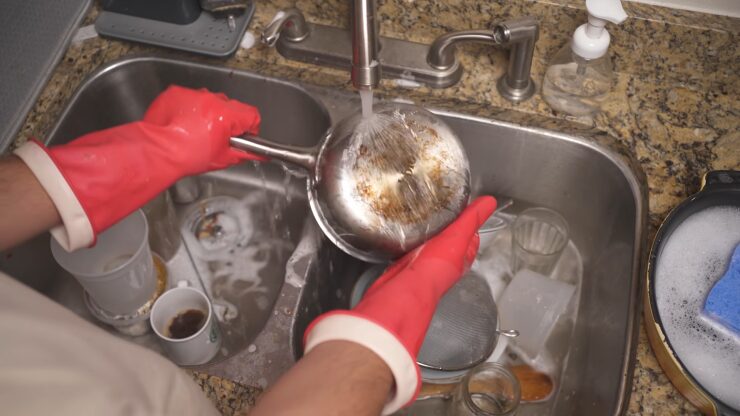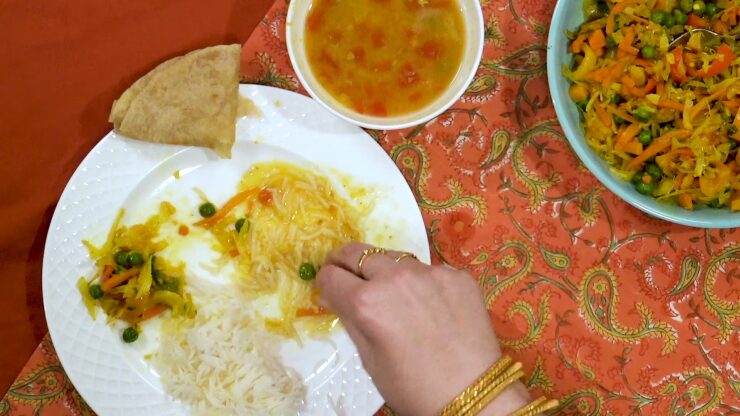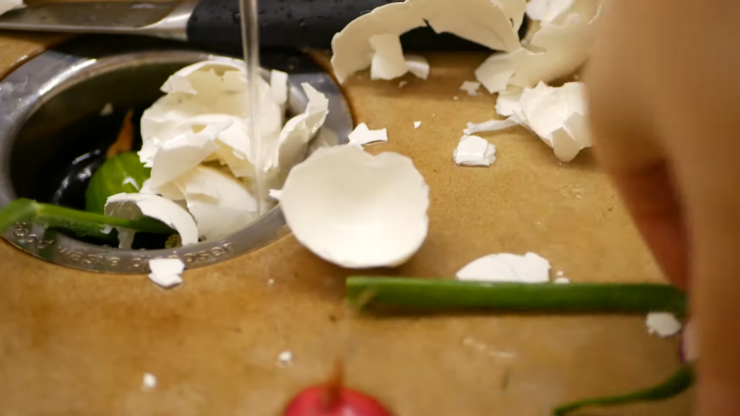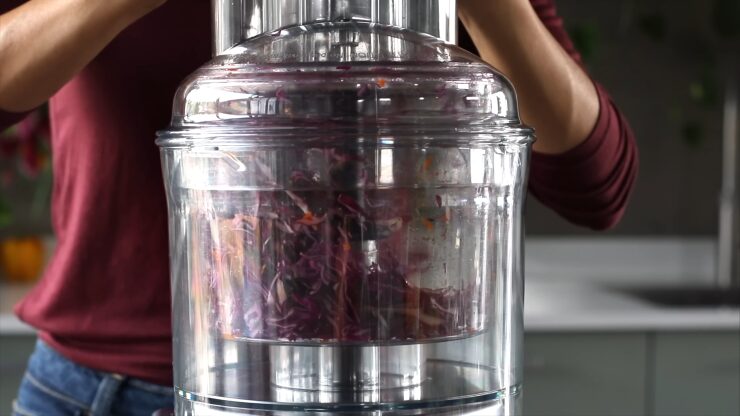You might think of the kitchen as just another typical place in your home or office, whether at home or business. All you consider it to be is likely a place to cook or store food.
There’s more to the kitchen than meets the eye, though, as it’s where your food is made regularly, and sanitation is always linked to it. That is, kitchens should always be kept clean and well-maintained. Naturally, it would be best if you also showed consideration for other kitchen users.
How do we go about doing it? Let’s now discuss a few particular kitchen etiquette you should know. If you are the one who maintains the kitchen and would like to establish guidelines, this might also be helpful. In this manner, you can clear things up, and everyone in the kitchen will understand how to behave and what is expected of them while they are in the kitchen.
Never Leave Dirty Dishes in the Sink

The number one rule in every kitchen is never to leave dirty dishes in the sink. It would draw bugs into the area, and getting rid of it would require much work. Therefore, the best action is to stop it immediately before it affects your area. Thus, it should be common knowledge that after using dishes or other cutlery, they must be thoroughly cleaned and rinsed.
Cover Your Food or Drinks in the Microwave
Covering is to avoid food or drink splatters all over the microwave interior while heating meals or beverages. However, if you cannot locate the lid or any other suitable cover, clean up any spills or splatters immediately to avoid hardening them since it would be more challenging to take it out of the microwave once it did.
Don’t Leave Any Mess on the Counter
Always remember to tidy up the area after using it. It is never appropriate to leave a mess on the counter for someone else to clean up after you have cooked or eaten.
Additionally, only take cutlery from the spoon dispenser you intend to use to prevent further waste. In this manner, you’ll ensure that nothing goes unused in the area and stop other users from perceiving that wasting or leaving things behind is acceptable.
Keep Your Hands Off Other People’s Food

While everyone can enjoy some foods, others may be labeled and would prefer to be kept from the other members. Additionally, as a courtesy to the owner, never touch or mess with it if something happens. Furthermore, even for food intended for general consumption, it prevents contamination.
Take Out Any Rotten Food Right Away
The final kitchen etiquette is to immediately remove the rotten food to stop it from worsening. It may also affect the quality of other food near the rotten food. Furthermore, rotten food will not fall into the bin alone, so keep an eye out for rotten food in the kitchen.
Label Your Food and Beverages
When storing items in a shared kitchen, it’s important to label them with your name and the date. This practice prevents confusion and ensures that others don’t accidentally use or discard your belongings. Labeling is particularly crucial for items with a limited shelf life, as it helps everyone keep track of freshness and avoid potential health hazards.
It also fosters a respectful environment where everyone’s personal items are acknowledged and protected. This simple act of labeling can significantly reduce misunderstandings and waste, promoting an organized and harmonious shared kitchen space.
Dispose of Waste Properly

Proper waste disposal is key to maintaining a clean and hygienic kitchen. Use designated trash and recycling bins for disposing of waste, and make sure to separate recyclables from non-recyclables. Avoid leaving trash or recycling items on countertops or in inappropriate places, as this can attract pests and contribute to unsanitary conditions.
Keeping the disposal areas neat and following local recycling guidelines not only keeps the kitchen clean but also reflects a collective commitment to environmental responsibility. Prompt and proper waste disposal is a simple yet effective way to contribute to the overall cleanliness and functionality of the shared kitchen.
Respect Cooking and Mealtime Schedules
Being mindful of others’ mealtime schedules and cooking plans is crucial in a shared kitchen. Avoid monopolizing the kitchen during peak times, such as breakfast or dinner hours. If you require extended time for meal prep, try to coordinate with others to ensure everyone has fair access.
Considering diverse culinary preferences is essential, too; for instance, if you’re experimenting with Japanese recipes and need unique ingredients, inform your housemates in advance to maintain the spirit of collaboration.
This respect for shared time helps prevent conflicts and ensures a more harmonious environment. It’s also a good practice to communicate your cooking plans with others if they might affect their meal routines, fostering a considerate and collaborative kitchen culture.
Maintain Kitchen Equipment
Proper maintenance of kitchen appliances and equipment is essential. After using any kitchen tools or appliances, clean and store them properly. This not only ensures the next person can use them in good condition but also extends the life of the equipment.
If you notice any malfunctions or damage, report them promptly so that they can be repaired or replaced, ensuring the kitchen remains functional and safe for everyone. Taking responsibility for the equipment you use demonstrates respect for the shared space and consideration for others who use it.
Use Kitchen Resources Wisely

Practicing resource conservation in the kitchen is important for both environmental and communal reasons. Use water, electricity, and kitchen supplies efficiently. For instance, turning off lights and appliances when not in use saves energy and reduces utility bills. Avoid wasting water by using it judiciously during dishwashing and cooking.
By using kitchen resources wisely, you contribute to a sustainable environment and show respect for the shared resources and expenses. Small acts like using a dishwasher at full load or boiling only the necessary amount of water can make a significant difference in resource conservation over time.
Wrapping Up
Establishing workplace employee kitchen rules is the most effective way to maintain correct kitchen etiquette. Additionally, these guidelines can be used as part of proper kitchen etiquette at home.
These are simple to follow, and if you do it regularly, you could be amazed at how much you become accustomed to it. Furthermore, if these guidelines are followed, you can maintain a pleasant connection with everyone who uses the same kitchen as you.

